In today’s episode, we’re focusing on how to be a collaboration superstar as SLPs. We’ll mostly be using examples from schools, but my hope is that the ideas we discuss could be useful in almost any setting.
Self-assessment
It can be helpful to start off by actually focusing on yourself a little bit, and thinking about your own feelings when it comes to collaboration. We’re all in different places, and that’s ok! But it can definitely be helpful to know where you’re starting from. It is also worth to think about the unique skills and strengths you bring to the table as a collaborator.
Start small
Now, let’s move on to some practical strategies for HOW to be more effective in our collaboration; one of the most important strategies is to start small. Choose something really manageable and sustainable, and ideally, something that is connected to your own passions and interests, and then go for it.
Make it fun!
Apart from starting small, we also want to start small so that we make sure we keep going. We also want to make it FUN so that we enjoy the process of collaboration and stay committed, even when it’s challenging.
Don’t start from scratch if you don’t have to
Don’t start from scratch or reinvent the wheel in order to collaborate. The specifics of this one could vary from setting to setting, but I think the core principle holds true no matter where you’re working. The idea is to look for situations where collaboration already exists on some level, and build from there.
Define the collaboration
Often times, when we try to collaborate in real life, we don’t always have clearly defined roles or intentions, and this can make things really tricky. My final recommendation, to get super clear about your definitions and goals, no matter what type of collaboration you are incorporating into your work.
I hope you find this podcast about how to be a collaboration superstar to be useful. If you have any other ideas and tips, I would love to hear from you!
References and resources:
- American Speech-Language-Hearing Association. (2010). Roles and responsibilities of speech-language pathologists in schools [Professional issues statement]. https://www.asha.org/SLP/schools/prof-consult/guidelines/
- Mitchell, M., Ehren, B., & Towson, J. (2020). Collaboration in schools: Let’s define it. Perspectives of the ASHA Special Interest Groups, 5(3), 732–751. https://doi.org/10.1044/2020_PERSP-19-00125
- To sign up for a 7-day free trial, please check out: www.thedigitalslp.com/digitalslp
Full Transcript of Podcast: How to be a Collaboration Superstar
Episode 101 - How to be a Collaboration Superstar
Welcome back to another episode of the Speech Space Podcast, which is a podcast full of tips and resources for SLPs. I'm your host, Jessica Cassity, and this is Episode 101.
In today's episode, we're going to be focusing on how to be effective collaborators as SLPs. We'll mostly be using examples from schools, but my hope is that these ideas that we discuss will be useful in almost any setting. Before we jump in, I did want to mention that this podcast is brought to you by The Digital SLP membership site, which is a site that features time-saving interactive digital resources that are all teletherapy platform-friendly. You can learn more or sign-up for a free trial by heading on over to thedigitalslp.com/digitalslp.
Now let's go ahead and get started with today's episode. So even though collaboration is all about working with others, it can be helpful to start off by actually focusing on yourself a little bit, and thinking about your own feelings when it comes to collaboration.
In my experience and from my conversations with other SLPs, we all think about collaboration a little bit differently. Some of us love collaborating, and we look for every possible opportunity to team up with our colleagues. We might even feel isolated in our SLP work and love the human connection that comes with collaborative processes.
Some of us might feel a little more hesitant about collaboration. Maybe we are introverts, or maybe we are in an overwhelming job, and collaboration feels like just one more item on our to-do list. Or maybe our workplace isn't set up for effective collaboration.
Many of us are probably somewhere in the middle. Maybe we want to collaborate more, but we're just not sure how, or maybe we don't feel confident in our collaboration skills, or maybe we're actually required to collaborate in specific ways, but it doesn't feel purposeful. We're all in different places, and that is completely okay! But it can definitely be helpful to know where you're starting from.
It's also helpful to think about the unique skills and strengths that you bring to the table as a collaborator. Of course, as an SLP, you bring specialized knowledge of communication development. But even within our role as SLPs, we have our own unique personality and passions. Maybe you're an amazing listener or you're great at coming up with creative ways to teach challenging skills. Perhaps you're especially effective at analyzing data. A huge part of being an effective collaborator is embracing the unique magic that you have to offer.
Of course, we're always growing and changing, so our self-understanding is never complete, but it's definitely worth it to take some time and think about how you feel about collaboration and what you bring to the table.
Now let's move on to some practical strategies for how to be more effective in our collaboration. I think one of the most important strategies is to start small. Choose something really manageable and sustainable, and ideally something that's connected to your own passions and interests, and then just go for it.
Many of us have that one teacher buddy at school. You know, somebody that you just really click with or you know, half of your caseload maybe seems to be in that person's class, so you're always checking in with them. If you're interested in giving classroom-based services a try, this could be a great opportunity for that. Maybe you go to their classroom, say just 15 minutes a week for that entire school year, and then increase your time the following year. It's really possible to start that small. I don't want this to feel overwhelming, so I really wanna stress that you can start with baby steps.
Maybe you've noticed that sensory processing is a big factor for your students and their ability to engage during speech therapy. So you and the school OT decide to co-treat during one 30-minute group each week, which allows you to learn more about sensory supports while also modeling language strategies for the OT.
So those are just two possible examples, and I'm sure that you can think of many more that are relevant for your unique situation. The beauty of starting small though is that you're less likely to get overwhelmed, so you can actually take action and follow through. And then, once you start, you're more likely to feel successful, so you're more likely to keep going, and then you might even be more likely to look for additional collaboration opportunities. So it can be an amazing snowball effect whenever we just start small.
Okay, so now that we just covered starting small to keep that goal sustainable, let's talk about making things fun so that we enjoy the process of collaboration and that in turn will make us want to stay committed, even when it's challenging.
I know that many of us love hanging out with little ones, but it can still be energizing to have a little bit of connection with other adults throughout the week, and collaboration gives us an opportunity to access that energy.
Collaboration also gives us an opportunity to experience the power of attention. If we focus on all the difficult parts of collaboration and the frustration of trying to make time for it during our busy days, then honestly that's what we will experience!
On the other hand, if we focus on fun and laughter and that amazing feeling of interacting with other passionate professionals, then that's what we will experience. This doesn't mean that all the difficult parts will disappear, but they might be less overwhelming.
It's also incredible to see how much more engaged our students are when we are having fun ourselves. I remember hearing from one SLP who was co-leading classroom-based services with an OT at her school, and together they decided that one of their biggest priorities would be to have fun while working together.
They incorporated their favorite books, they made up silly songs, and they even spent an entire session making ice cream with students. Now, it definitely was a lot of work, but they felt excited about it instead of feeling depleted. And they also noticed that student participation became more and more enthusiastic.
Now, Mr. Rogers once said that "Play is serious learning," and as SLPs, we know that this is true. Not only is it true for our students, it can be true for us as well. So definitely look for ways to make collaboration a joyful experience whenever you can.
Okay, let's move on to our next tip, which is don't start from scratch or try to reinvent the wheel in order to collaborate. The specifics of this one could vary from setting to setting, but I think the core principle here holds true no matter where you're working.
The idea is to look for situations where collaboration already exists on some level and build from there. Just as an example, pretty much every SLP who works in a school is required to attend IEP meetings, and ultimately the whole point of those meetings is collaboration.
So, if you're interested in building more collaboration into your work life, IEP meetings could be a great starting point, and you don't have to create anything brand new. So you could try being more intentional about reaching out and getting teacher input prior to IEP meetings.
Or, you could implement an IEP follow-up practice where you check in with the teachers and mention something you appreciated that they said in the meeting. These types of interactions might feel very simple and basic, but they can be very powerful foundations to build on.
All right, so far in this episode, we have discussed starting small, keeping things fun, building on existing opportunities for collaboration. But before we close for today, I have one more tip to offer that connects to everything that we've talked about so far.
This last idea is all about actually defining collaboration and being very explicit about what you hope to accomplish with it. Mitchell and colleagues published a really interesting article about this in 2020, and I'll put the reference in the show notes. They brought up this idea that we often talk about collaborating, and ASHA even mentions collaboration in their professional issue statement. But when we try to collaborate in real life, we don't always have clearly defined roles or intentions, and this can make things really tricky.
I think a super common example of this is with classroom-based services, which are also sometimes called push-in services. I've heard from so many SLPs who have given this a try and found that they ended up feeling awkward, and they weren't really sure what to do in the classroom, and in the end, it seemed like they were kind of like a teacher's assistant.
Now, these challenges are very real, and ultimately they happen when the collaborative process isn't well defined. It's so freeing to realize this because then we have a way to move forward and make things better. We can develop really clear expectations about who's doing what and for what purpose. So that would be my final recommendation to get super clear about your definitions and goals, no matter what type of collaboration you're incorporating into your work.
Also, just as a side note, today we focused on collaborating with other professionals, but working with families is another valuable type of collaboration. So maybe we'll do a future episode about collaborating with parents and families in the future. Feel free to send me a DM on Instagram @thedigitalslp if this is something that you would be interested in hearing more about.
For now, we'll go ahead and wrap up today's episode. If you enjoyed it, please consider taking a moment to leave a five-star review to make it easier for fellow SLPs to find this show. We release new episodes twice a month on the first and third Tuesdays. And also, please don't forget to check out thedigitalslp.com/digitalslp if you are interested in exploring the membership and other content. Thank you so much for listening!

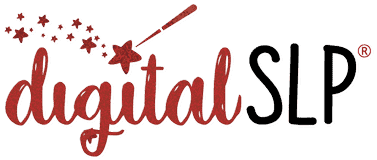
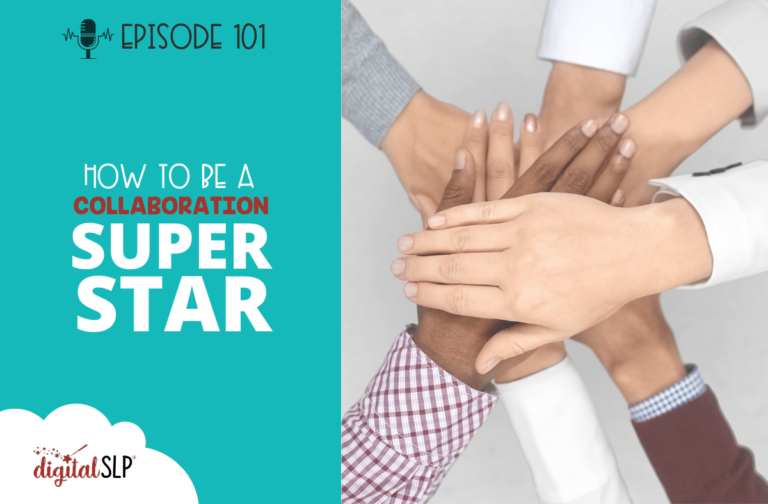
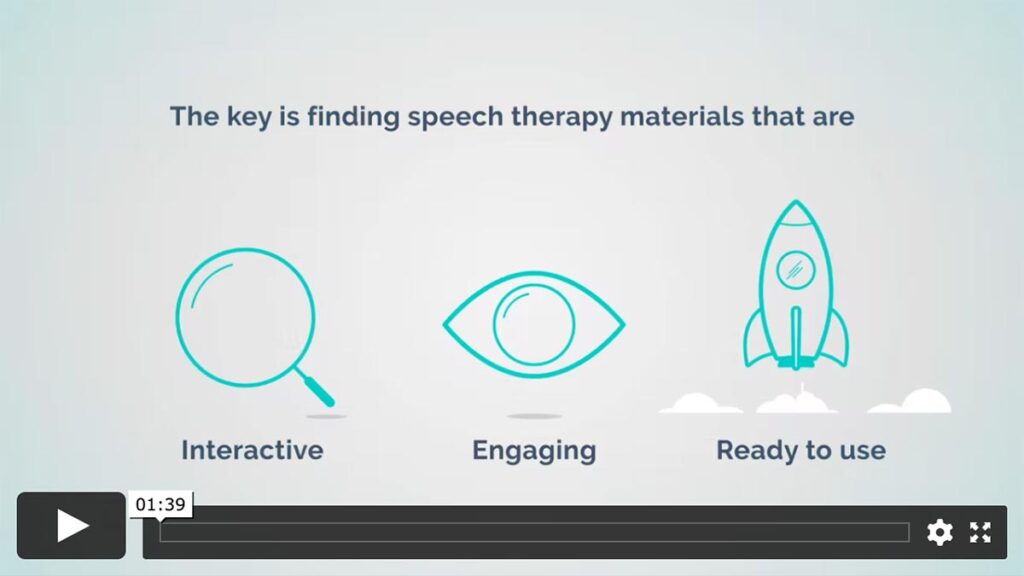
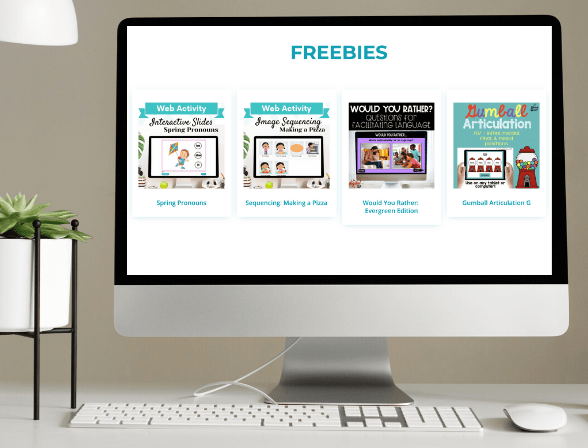
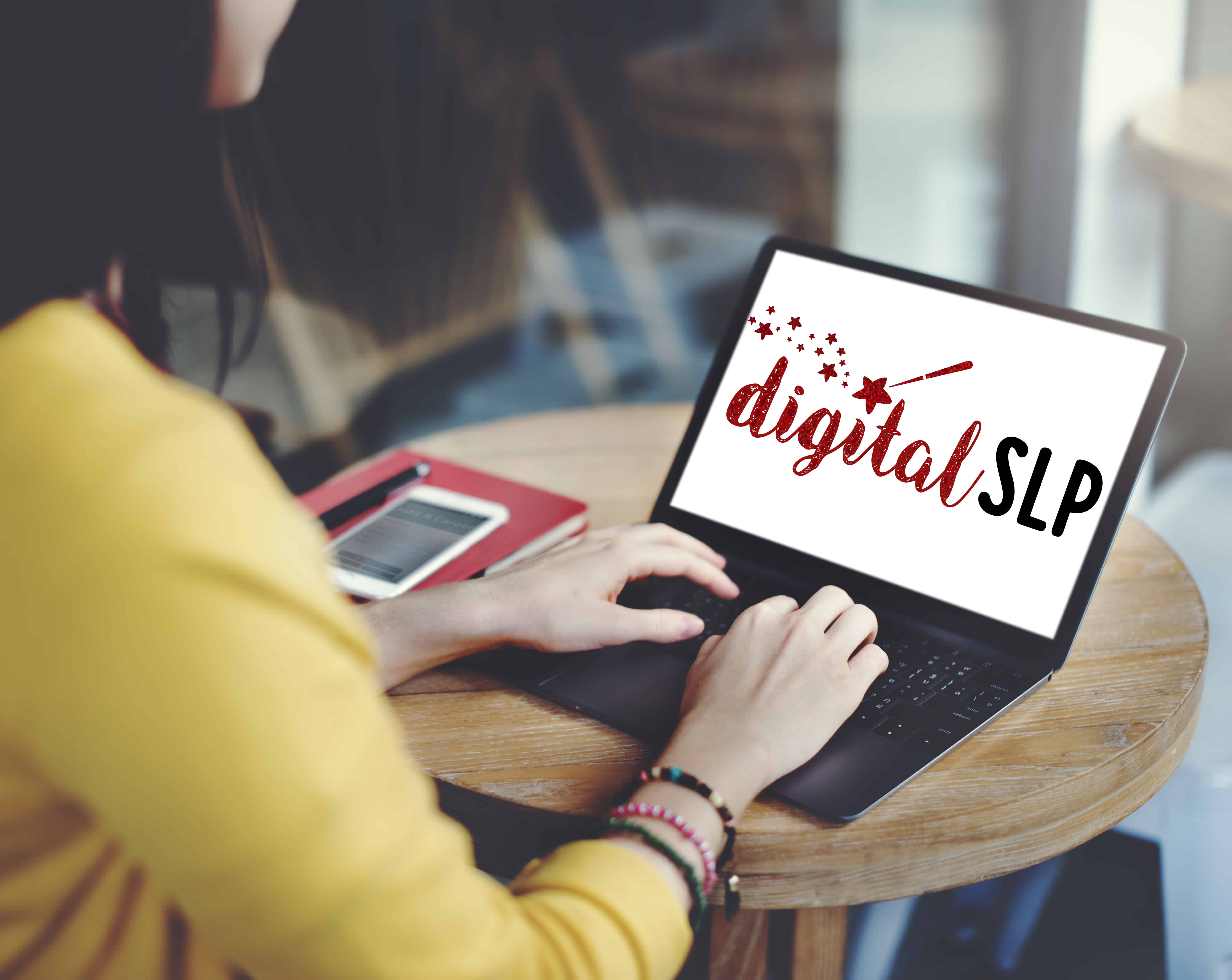
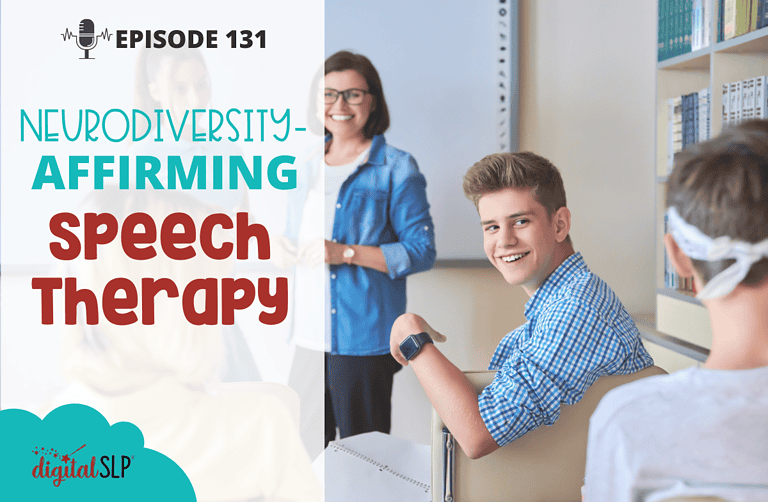
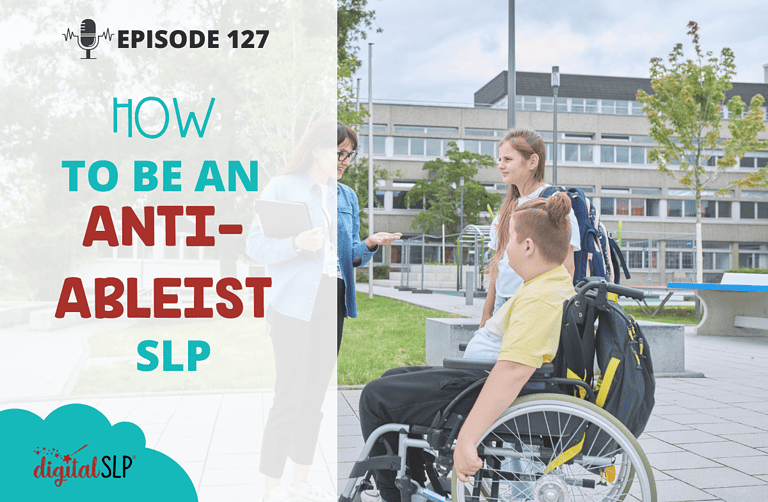
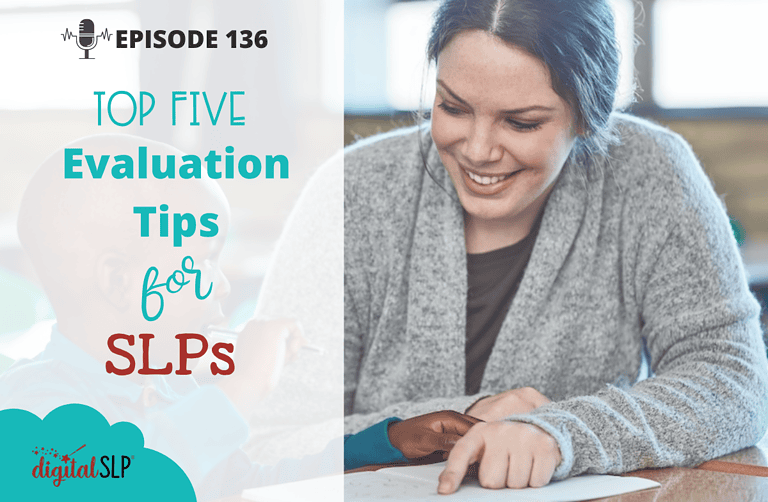
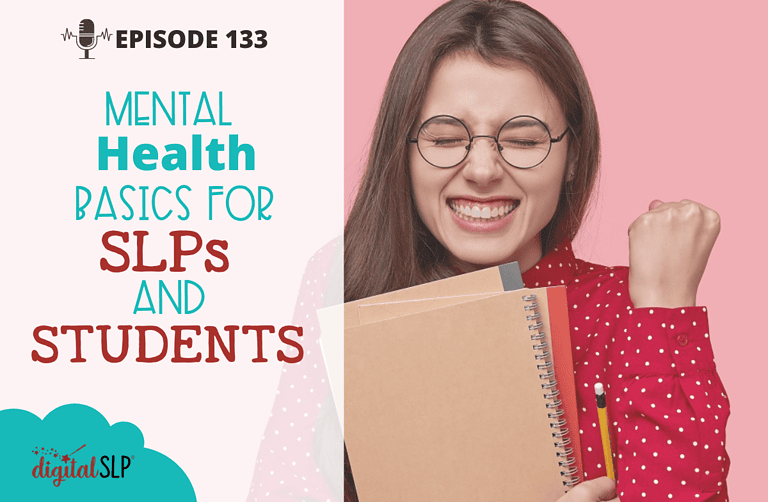
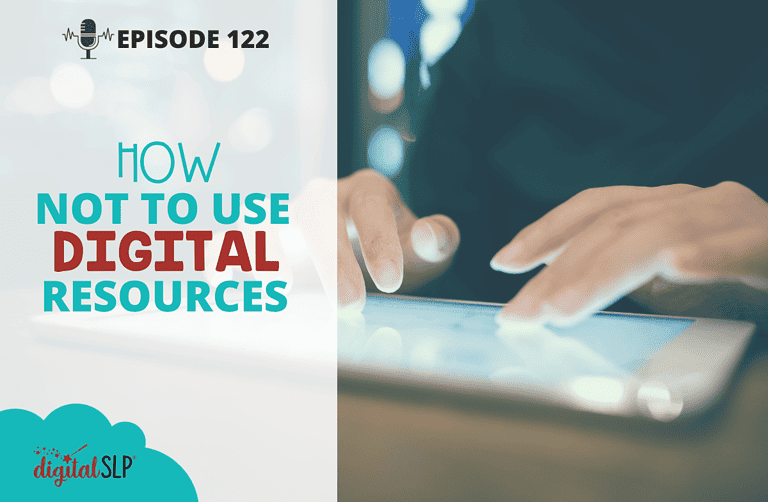
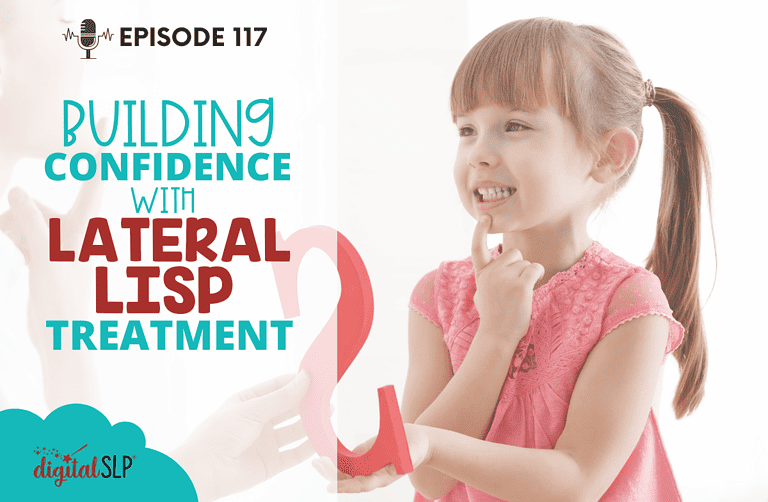
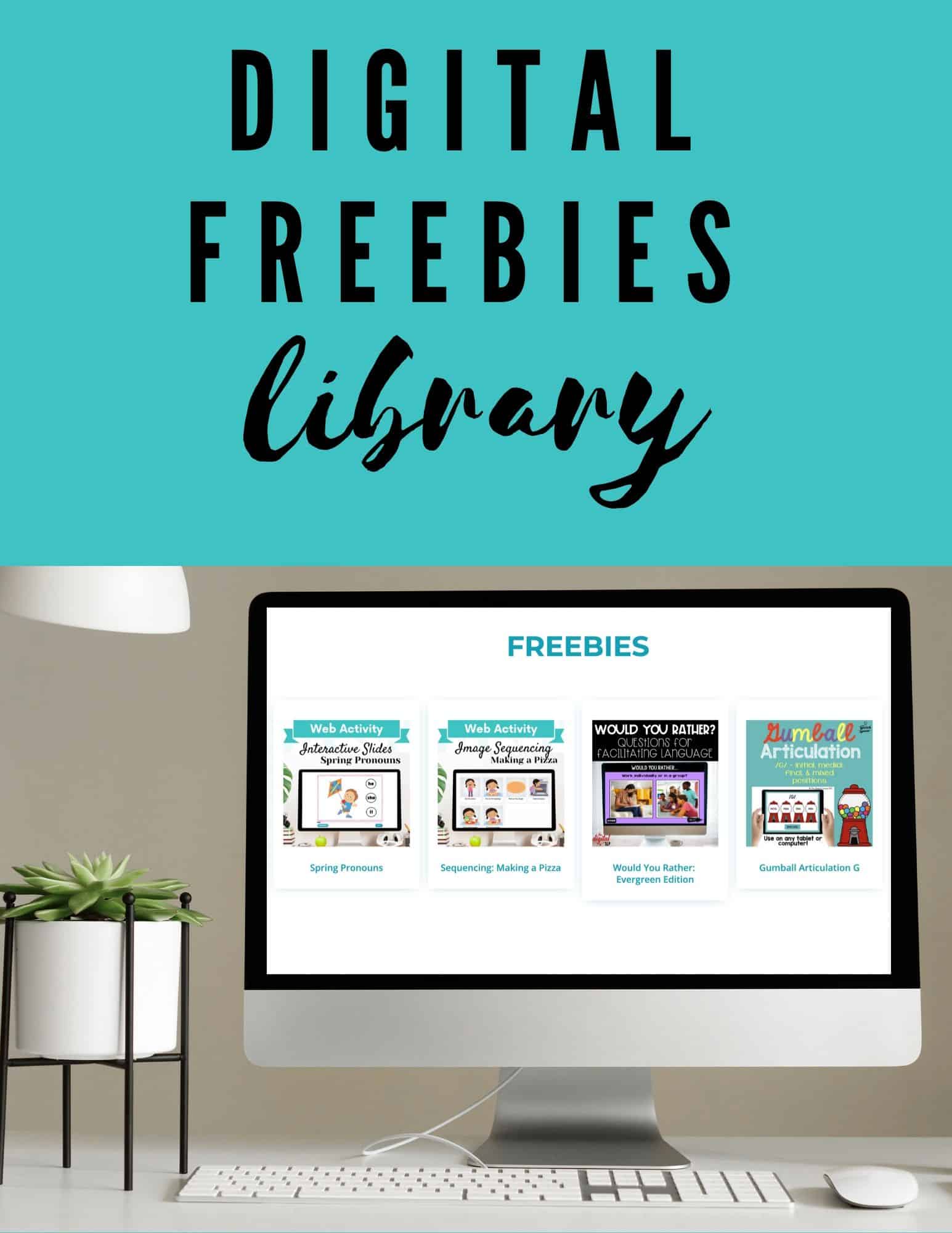
Recent Comments